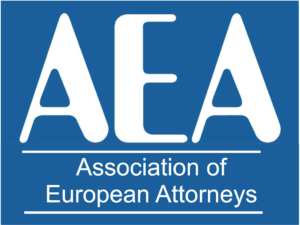According to a recent report published by the Ministry of Justice, more than 80,000 legal entities have been prosecuted or had their cases dismissed by the public prosecutor’s office. They represent 28% of labour law offenders, 25% of financial and economic offenders and 16% of environmental offenders.
- An extension of the limitation periods in criminal matters
The law of February 27th, 2017 reforming the statute of limitations in criminal matters provides in particular for a doubling of the limitation periods for the prosecution of crimes and offences.
Whereas until now offences and crimes were time-barred after 3 and 10 years respectively, nowadays, public prosecution of crimes is statute-barred after 20 years from the day on which the offence was committed and public prosecution of offences is statute-barred after six years from the day on which the offence was committed.
The impact in terms of criminal business law is therefore considerable insofar as most of the offences concerned are misdemeanors (fraud, corruption, abuse of trust, embezzlement of corporate assets, money laundering, etc.), the statute of limitations on which thus increases from 3 to 6 years.
With regard to hidden or concealed offences, the jurisprudential principle of determining the starting point for the prescription of these offences, not at the time of their commission, but on the basis of their potential discovery, is established at the legislative level.
- A concealment of violations defused by the whistleblower
The Law of December 9th 2016 (known as the Sapin II Law) on transparency, the fight against corruption and the modernisation of economic life created the status of whistleblower.
For example, Carolos Ghosn has been in pretrial detention for 3 months in Japan for concealing a significant part of his income from the Japanese tax authorities in recent years. His arrest was the result of an internal investigation conducted after a whistleblower reported him.
Also, on February 20th, 2019, UBS, the largest Swiss bank, was fined a record $3.7 billion in France for money laundering by the Paris Criminal Court. An additional €800 million in damages will be paid to the French government. Nicolas Forissier is the man who made the violations public. Promoted to head of internal audit in 2002, he was in charge of supervising all UBS French entities.
Nicolas Forissier was interested in documents that listed the funds collected in France before being transferred to Switzerland. He recorded his findings in a report by first notifying his hierarchy. Against the advice of his superiors, he then alerted the Autorité de contrôle prudentiel (ACP) and Tracfin, an agency of the Ministry of the Economy and Finance responsible for combating tax fraud.
It is clear that changes in mentalities and procedural law are contributing to an increase in the criminal risk of the business leader.
In this context, can we consider that the business leader has become a criminal target?

